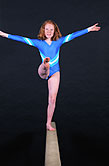
THURSDAY, July 22 (HealthDay News) — Varying the types of skills you work on in practice sessions engages a different part of the brain than the one you use when focusing on a single task, researchers say.
The finding explains why variable practice improves the brain’s memory of most skills better than working on just one type of task, according to the research team from the University of Southern California and the University of California, Los Angeles.
In their study, published online recently in Nature Neuroscience, the investigators divided 59 volunteers into different groups. Some were asked to practice a challenging arm movement, while others did the arm movement and related tasks in a variable practice structure.
The participants in the variable practice group learned the arm movement better than those who practiced only the arm movement, the study authors found.
Among those in the variable practice group, the process of consolidating memory of the skill engaged a part of the brain called the prefrontal cortex, which is associated with higher level planning. Among those who practiced only the arm movement, the engaged part of the brain was the primary motor cortex, which is associated with simple motor learning, the authors explained.
“In the variable practice structure condition, you’re basically solving the motor problem anew each time. If I’m just repeating the same thing over and over again as in the constant practice condition, I don’t have to process it very deeply,” study senior author Carolee Winstein, a professor of biokinesiology and physical therapy at the University of Southern California, said in a university news release.
“We gravitate toward a simple, rote practice structure because we’re basically lazy and we don’t want to work hard. But it turns out that memory is enhanced when we engage in practice that is more challenging and requires us to reconstruct the activity,” she noted.
More information
The University of South Dakota has a tool for understanding learning styles.

